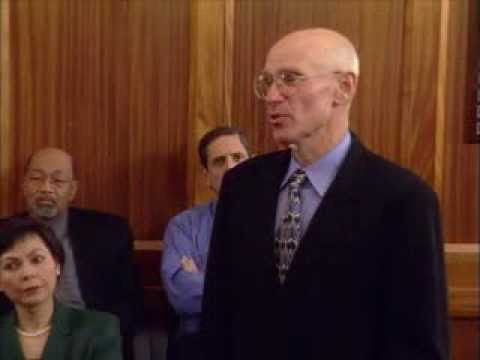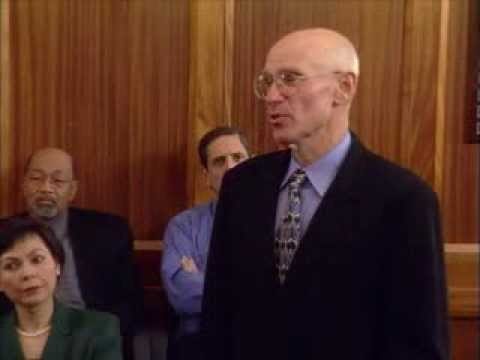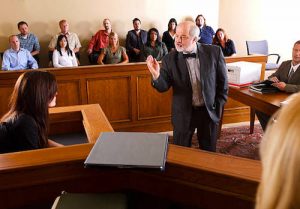

What Is An Expert Witness Testimony
Expert Witness Testimonies
Jury trials are a very precarious situation, one where there’s a lot at stake. Depending upon the nature of the case and its complexity, either side, or both, may want to enlist the services of an expert witness. This witness is one who can provide testimony to either substantiate or refute evidence that has been presented at trial. It could be a forensic expert, or someone who possesses certain technical knowledge who is called in to testify regarding his or her skill or experience in a particular field.
 In construction, expert witness testimonies are needed for home owners and developers that have construction defects and rely on an expert witness testimony in court to win the case for any job that has flaws. Building projects that are not done to code are also something that require an expert witness testimony. Companies like Goodman Consulting out of Oklahoma City are experts in this area. You can visit their website here at https://tcdexpert.com/ to learn more about the process and how expert witnesses in the construction industry work with home owners and developers in the court of law.
In construction, expert witness testimonies are needed for home owners and developers that have construction defects and rely on an expert witness testimony in court to win the case for any job that has flaws. Building projects that are not done to code are also something that require an expert witness testimony. Companies like Goodman Consulting out of Oklahoma City are experts in this area. You can visit their website here at https://tcdexpert.com/ to learn more about the process and how expert witnesses in the construction industry work with home owners and developers in the court of law.
An expert witness’s duty in a trial is to provide fair, independent and impartial information regarding his or her direct knowledge of a subject, and to make it easier for the jury to understand. To be deemed an expert witness by the court, one must pass the Daubert test; a method utilized by the federal courts to determine is someone has the experience or knowledge necessary to be called an “expert”. If so, the testimony is admissible in court; if not, the testimony is thrown out. The Daubert test takes into account the following: whether or not the reasoning underneath the testimony is scientifically valid and if the reasoning can be applied to the facts in the issue. The court must determine if the potential expert’s testimony is relevant and reliable.
Not all expert witnesses are selected due to their academic backgrounds; some are considered experts just on their experience and expertise. While an unusual example, the movie “My Cousin Vinny” presents an expert witness that illustrates this point. Marissa Tomei’s character in the movie is called upon to be an expert witness regarding tire treads, even though the expert witness for the other side has already stated that the tires match those found on the defendant’s car. A car matching the defendant’s car had been seen leaving the scene of a murder and it had left behind tire skid marks. She is called upon to refute the expert witness’ testimony based upon her intricate automotive knowledge. The prosecution questions her true expertise; she proceeds to rattle off her personal experience rebuilding cars. The attorney then tries to trick her with a question he believes only an automobile mechanic would know; she soundly puts him in his place with her answer and he concedes to her expert witness testimony. While only a movie, it demonstrates the Federal Rule of Evidence 702, which states that an expert witness can be one who must have “knowledge, skill, experience, training or education” that will “help the trier of fact to understand the evidence or to determine a fact in issue.”
Expert witness testimony can be introduced in any court, from family court to criminal court. These witnesses, based on their knowledge and the subject matter, can command several hundred dollars per hour for their fee, making it potentially difficult to afford one. If you happen to be an expert in a field, you can join a service that provides expert witness testimony to the court. They will call upon you when they have a case that matches your expertise, and then you would proceed to provide the information you know to the judge and/or jury. You do, also, have to do your own research because your reputation can be destroyed on the stand if you are unprepared. Taking the word of the attorney that is hiring you for your services will not be enough; you will need to verify facts yourself to ensure your integrity.
Additionally, you must be an objective witness, testifying to what you know is fact. By trying to sway the facts to one side of the argument or the other will damage your credibility. Most attorneys would agree, too, that you keep writing to a minimum. Any notes, correspondence, reports, etc., that you may have written down, even as a preliminary outline, may be presented as discovery, including any reservations you may have, or any small opening the other side may use to impede your credibility.
When called to the stand, keep in mind that you want to be straight to the point, sincere and lacking in as much technical jargon as possible. If you attempt to “show everyone what you know”, you could come across as arrogant and condescending; you will lose the jury’s attention and respect with a disrespectful attitude. You will also want to be prepared for anything that might be thrown at you to make to appear not credible. Either have the attorney who hired you prepare you for potentially surprising questions, or read up on cases similar to the one you will be testifying at, so that you may see the situation from all angles. The less credible the opposing side makes you and your testimony appear, the better for their case! Recognize, too, that the case may hinge on your expert testimony, so you must ensure that based on all the information available to you that the facts you present are true and correct.
Expert witnesses have played a major part in some very famous trials. The trial of George Zimmerman, accused of shooting and killing teenager Trayvon Martin, claimed self-defense. An expert witness was called by the defense, and he corroborated the story that Zimmerman’s injuries were consistent with a struggle. The expert witness, Vincent Di Maio, is an expert in gunshot wounds, and he concluded that Martin’s clothing was in a position where he would have been leaning forward when he was shot. This, too, matched the story given my Zimmerman and many believed that Di Maio’s testimony was what sealed the deal: Zimmerman was acquitted of both second-degree murder and manslaughter.
An expert’s testimony can make or break a case, so it is imperative to find someone with a legitimate background who is completely unflappable while on the stand. They should be able to submit their facts in an unbiased, straight-forward manner, while maintaining composure regardless of the circumstances. Lives could potentially hang in the balance based on an expert’s testimony, a fact that has been seen in many cases over the years.
Comments are Disabled